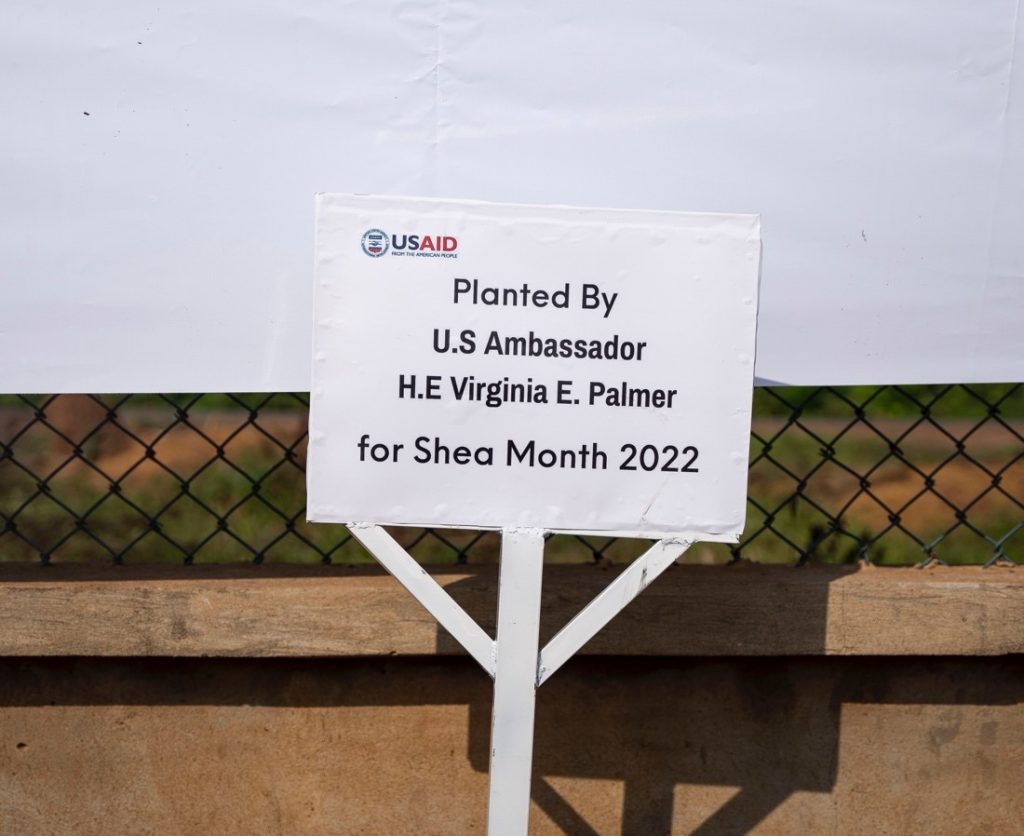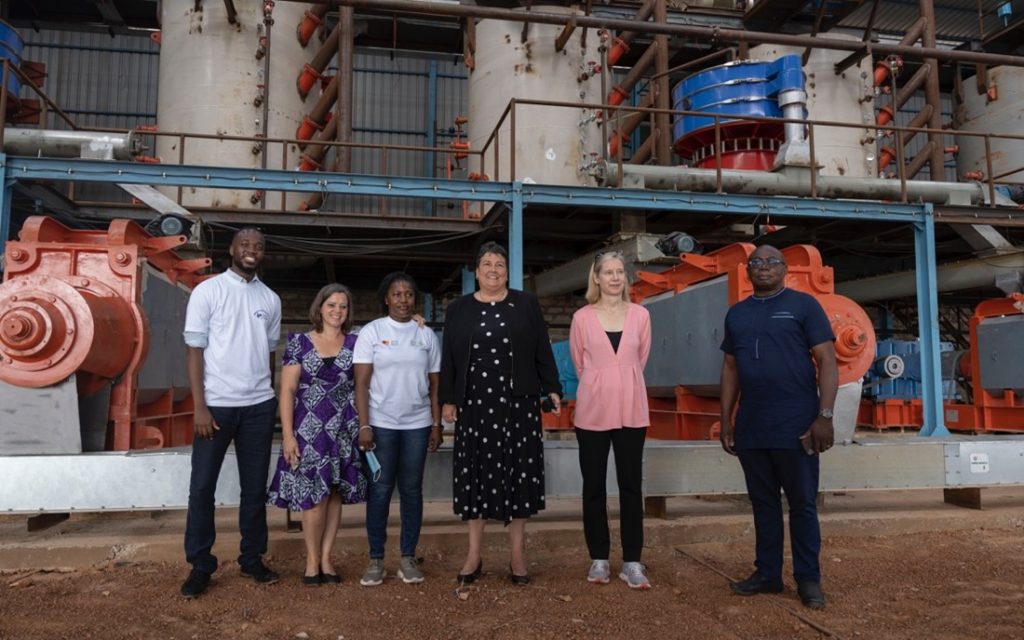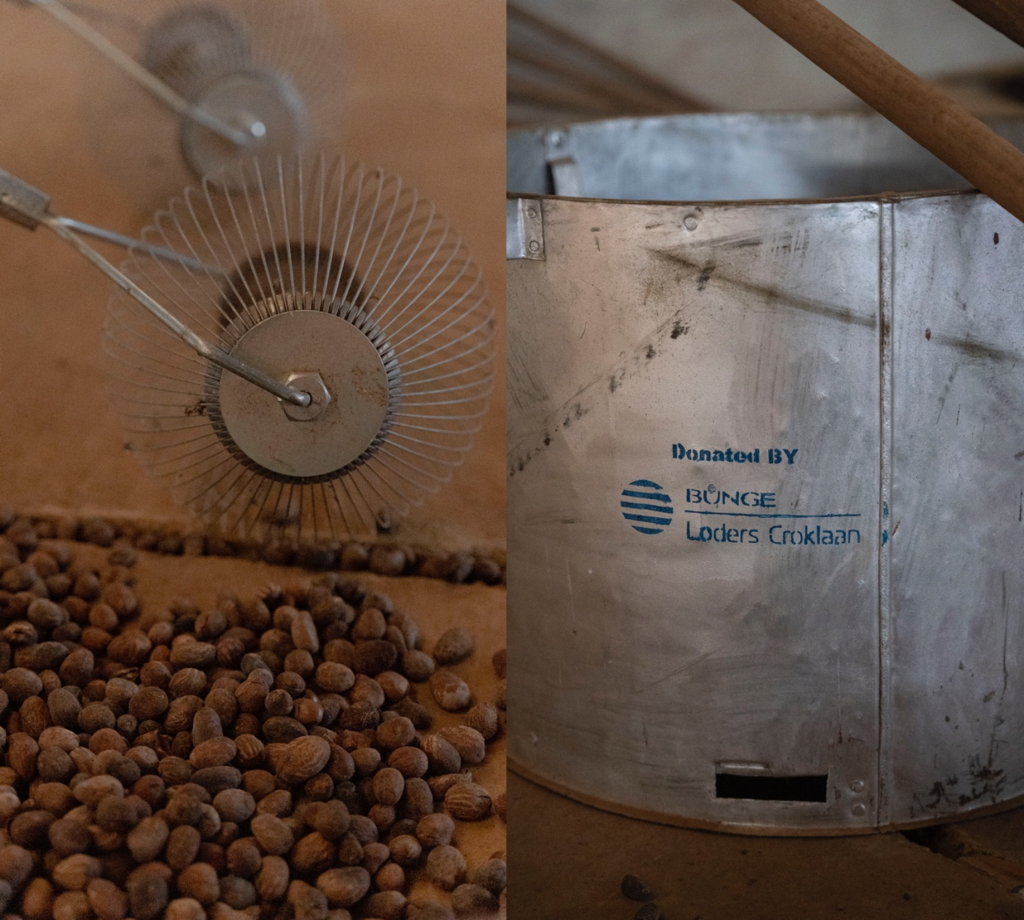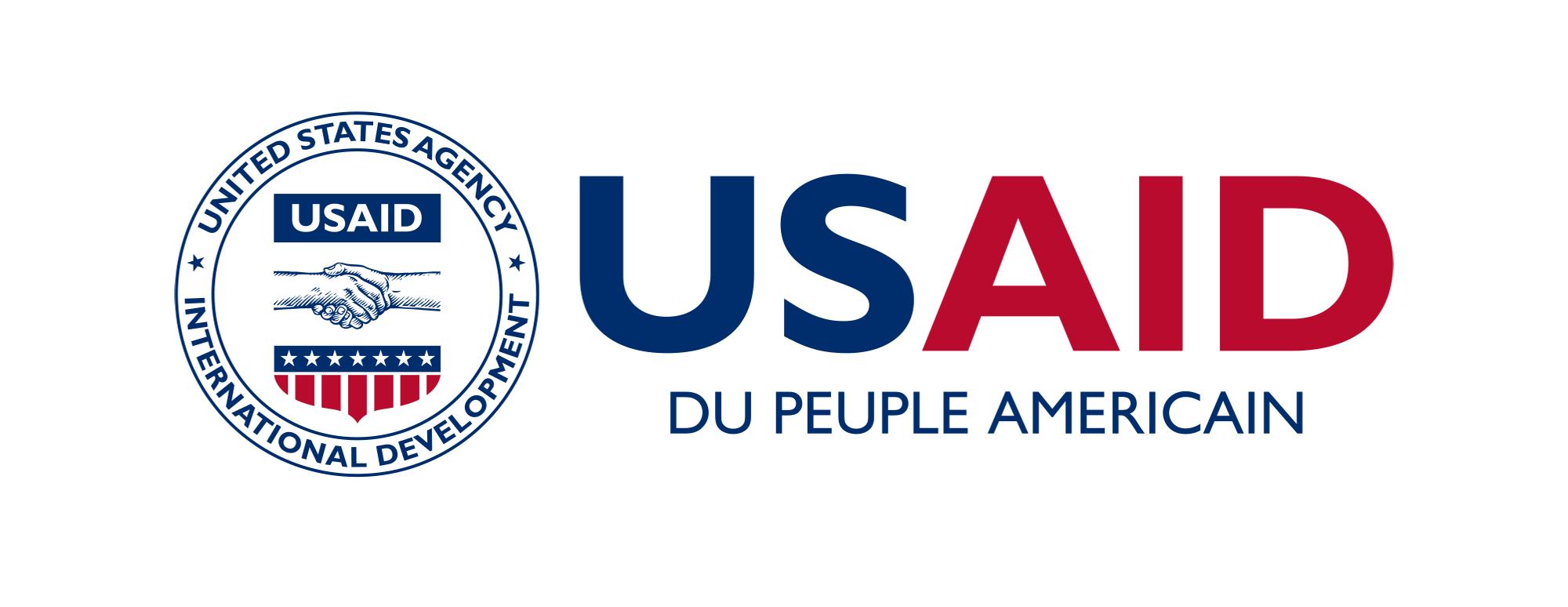Ambassador Virginia E. Palmer, U.S. Ambassador to Ghana, Marks First Official Trip to Tamale with Tree Planting Ceremony with Nuts for Growth
By: Akua Nana Mensah, Communication Specialist
The global demand for shea has continued to rise over the last few decades, pushed by an increased demand for cocoa butter alternatives (used for natural cosmetics and soaps) as world prices for cocoa continually rise. The shea tree grows naturally in the wild in the semi-arid Sahel stretching through West and Central Africa, known as the “shea belt.” This growing demand for shea has birthed an industry of shea collection and processing that employs largely rural women who inhabit the shea belt. These women collect the nuts as they fall in the wild and navigate means to sell the nuts and/or process them into the coveted shea butter to be sold in local and international markets.

In northern Ghana, this story remains true. The shea collection and processing industry employs tens of thousands of women in the region, typically through informal organizations termed cooperatives. As the industry continues to expand, companies such as Nuts for Growth, a USAID West Africa Trade & Investment Hub co-investment partner, work to modernize the shea collection and processing process and ensure that the rural women who drive it receive fair wages and training to improve the efficiency of their work.
On July 21, 2022, the United States Ambassador to Ghana, Her Excellency Virginia E. Palmer, and USAID/Ghana Mission Director, Kimberly Rosen, joined a private sector event held at the Nuts for Growth factory in Tamale, Ghana—the launch of the Shea Business Empowerment Program (SBEP), funded by the Mastercard Foundation, in collaboration with the Global Shea Alliance. Nuts for Growth is a Trade Hub grantee under the USAID/Ghana Mission and is a key supplier to a U.S.-based company, Bunge Ltd. The SBEP is part of the Mastercard Foundation’s Young Africa Works strategy and aims to support 90,000 women shea collectors in Ghana with collection vehicles and a digital traceability app.

During the event, U.S. Ambassador H.E. Palmer and Mission Director Rosen were led on a tour of the factory by Nuts for Growth CEO, Dora Torwiseh, participated in a shea tree-planting ceremony, and delivered opening remarks detailing the importance of public-private partnerships in promoting sustainable and inclusive growth in northern Ghana and trade between the United States and Ghana.
“By leveraging each other’s investments, the Mastercard Foundation and the U.S. Government amplify our impact on poverty reduction, youth employment, food security, and forest conservation in northern Ghana,” Ambassador H.E. Palmer remarked in her opening address. “The Mastercard Foundation is bringing a digital tool that improves the traceability of shea and soya, and the U.S. government increases the volume of shea and soya production; and together, we’re creating a more resilient, women-based supply chain, a stronger and more inclusive company, and more robust, sustainable trade between our two countries.”
The USAID-funded Trade Hub awarded a $980,000 co-investment grant to Nuts for Growth to promote soya production among 20,000 women shea nut collectors and support the development of the factory. Nuts for Growth is a key example of complementary partnership between private actors and USAID.


